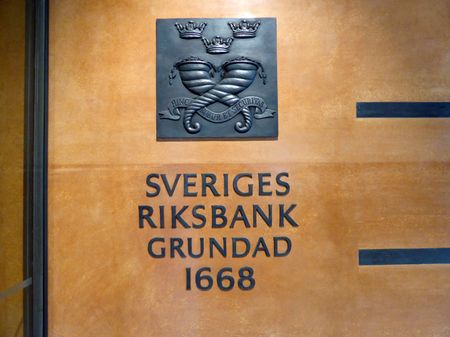By Simon Johnson
STOCKHOLM (Reuters) – Sweden’s central bank is seen hiking its policy rate by three-quarters of a percentage point this week to get a grip on soaring inflation, a Reuters poll of analysts showed on Monday,
The Riksbank has tightened policy three times already this year, most recently in September when it hiked by 1 percentage point to 1.75% – the biggest move in 30 years.
But core inflation continues to pick up speed and thirteen of sixteen analysts in the poll forecast a hike to 2.5% when the central bank announces it policy decision on Nov. 24.
“After high inflation in October, most indications point to a rate hike by at least 75 bps,” banking group SEB said. “However, a larger 100bps hike cannot be ruled out.”
At the most recent meeting in September, the Riksbank said it would need to continue to tighten policy, outlining a 50 basis points hike in November and a further move early next year.
The central bank forecast rates would peak at 2.5%.
Analysts in the poll saw rates peaking slightly higher. Markets expect rates to rise to around 3.25% in autumn 2023.
Households are already struggling with a cost-of-living crisis and the economy is expected to slow sharply – banking group Nordea expects a 2% contraction in GDP and the central bank a 0.7% fall in 2023.
House prices have fallen around 10% since their peak in spring and higher mortgage costs will increase the pain.
But rate-setters argue that by acting firmly now, they won’t have to take even more aggressive measures later.
Headline inflation eased slightly in October, dropping to 9.3% from 9.7% the previous month. But the dip was mainly due to lower electricity prices. Underlying inflation picked up to 7.9% from 7.4%, worrying rate-setters.
Furthermore, the European Central Bank (ECB) doubled its deposit rate to 1.5% at the end of October and promised more tightening in the months to come.
Riksbank Governor Stefan Ingves – who steps down at the end of the year – has said Sweden’s policy rate needs be a “respectful distance” higher than the ECB’s in order to bolster the Swedish crown and prevent a jump in imported inflation.
The ECB has two more policy meetings before the Riksbank’s next rate decision in February. Markets see the ECB’s deposit rate rising to 2% in December, but investors also see a fair probability of a bigger move to 2.25%.
(Reporting by Simon Johnson; editing by Niklas Pollard)

